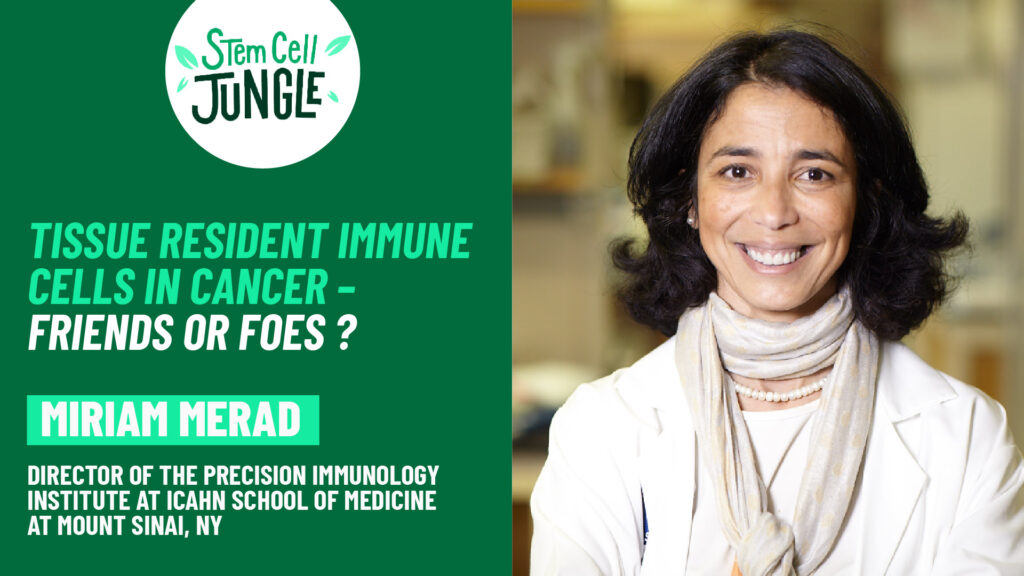Miriam Merad, MD, PhD, Oncologist and Director of the Precision Immunology Institute at Mount Sinai in New-York is an expert of tissue-resident immune cells in cancer. Here she highlights the ambivalent role of these cells in cancer and the potential therapeutic strategies to harness them.
Transcript:
So, in all tumor lesions, what happens is that when the cancer starts to proliferate, the immune system realizes that something is wrong. And the immune system of tissues – you know immune cells are present in every tissue, from the brain to the toes – macrophages and dendritic cells.
This is what we call resident immune cells, that are resident in the lesion, they detect something is wrong, and they start to be activated, and they recruit more immune cells to the site.
And then they educate them and they tell them kill or not kill. And initially that is the reason they call these immune cells is to eliminate the injury, which is the cancer that is proliferating. But cancer cells then find a way to fool the immune system and ask it to repair [the tumor]. Because at some point the macrophages eliminate or also try to repair. This is going to be important when we’ll talk about regenerative therapies. And the tumor fools the immune system, and then the immune cells start to feed the tumor, start to help it repair. And by helping [cancer cells] repair, promote their invasiveness. And this is exactly what many of us in the field are trying to understand: How we can stop the tumor fooling the immune cells and really harness this ability to recognize and potentially eliminate tumor cells.


